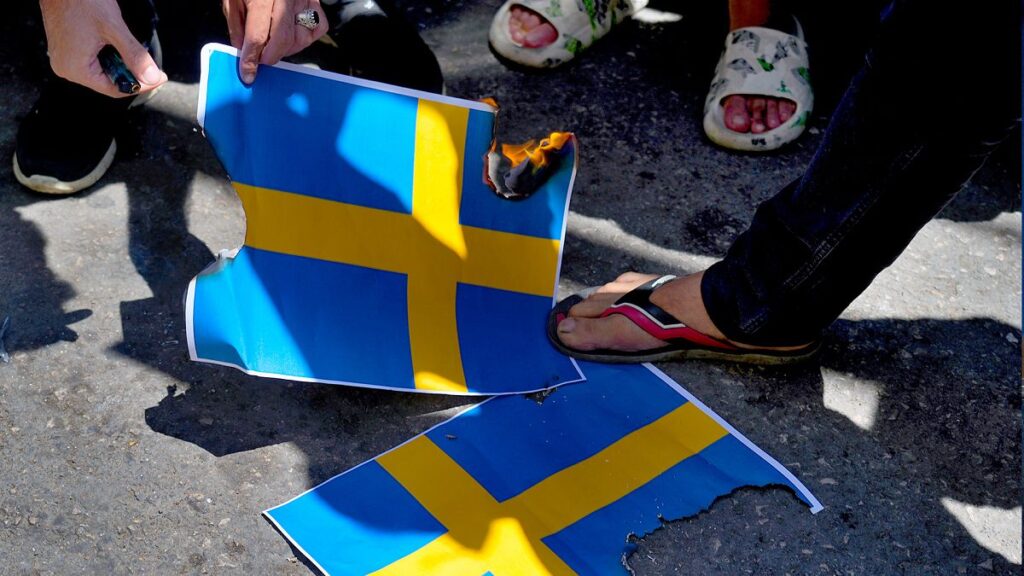Around 15,000 messages were sent to mobile phones in Sweden in the summer of 2023, calling for revenge.
The events date back to the summer of 2023, at the time of the highly publicized series of Koran burnings in Sweden. Acts authorized under the law on freedom of expression, but condemned by the Swedish government, and which had shocked the Muslim world.
Around 15,000 messages were sent to mobile phones calling for revenge.
Lead prosecutor Mats Ljungqvist said a preliminary investigation by Sweden’s domestic security agency, SAPO, showed that “It was the Iranian state, through the Iranian Islamic Revolutionary Guard Corps, that carried out a data breach at a Swedish company that runs a major SMS service.”
Iran has strongly denied the accusations. “baseless”.
The powder keg
Mr. Ljungqvist recalled that in August 2023, Swedish media reported that a large number of people in the country had received text messages in Swedish calling for revenge against people who burned the Quran.
He explained that the sender of these messages was “a group calling itself Team Anzu.”
Swedish broadcaster SVT published a photo of a text message saying that “Those who have desecrated the Quran must see their work covered in ashes” and treating the Swedes as “demons”.
Last May, SAPO accused Iran of using criminal networks based in Sweden as proxies to attack Israeli and Jewish targets in the Scandinavian country.
Destabilization and polarization
SAPO’s Chief Operating Officer Fredrik Hallström said the aim of the messages was also to “to give Sweden the image of an Islamophobic country and to create divisions within society.”
He accused the “foreign powers” to seek to “exploit vulnerabilities” and said that they “were now acting increasingly aggressively, and that this development was likely to intensify.” He did not name any country in particular.
For his part, Justice Minister Gunnar Strömmer told the Swedish news agency TT that “The fact that a state actor, in this case Iran, according to the (SAPO) assessment, is behind an action aimed at destabilizing Sweden or increasing polarization in our country is of course very serious.”
“Given that the actors are acting on behalf of a foreign power, in this case Iran, we consider that the conditions for prosecution abroad or extradition to Sweden are not met for the persons suspected of being at the origin of the offence”Mr Ljungqvist said.
Additional sources • AP




